Utah has the third-largest percentage of public versus private land of all the U.S. states, trailing only Alaska and Nevada. In addition, much of this public land is actively used for recreation. All of this public land helps to make Utah a beautiful and exciting place to visit, but it has also attracted certain kinds of illegal activity. This state is not only a magnet for huge numbers of tourists each year, but also a magnet for illegal marijuana growers.
According to a press release from the office of U.S. Sen. Orrin Hatch (R-UT), federal drug enforcement agents have seized hundreds of thousands of illegally grown marijuana plants on Utah public land in recent years, particularly in southern Utah. Hatch is co-sponsoring a bill that would increase the penalties for cultivating marijuana on public land and would also provide funds to help address the environmental impact of illegal marijuana grows.
Environmental Damage, Public Safety Are Major Concerns
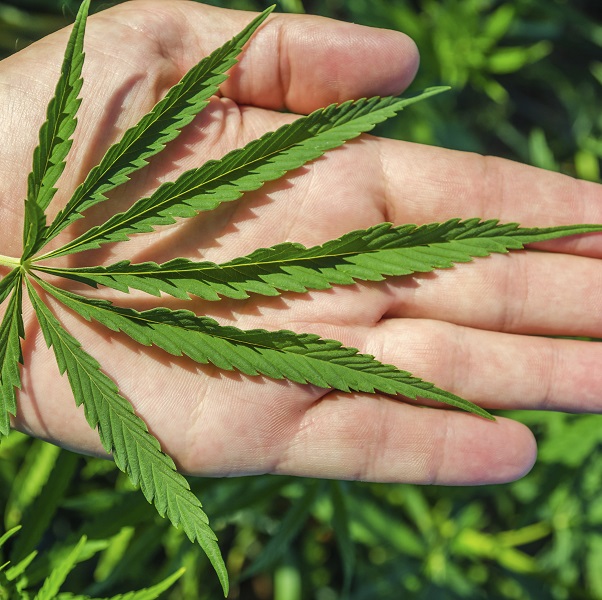 Large-scale marijuana grows use and pollute valuable water resources in addition to leading to the clear-cutting of trees. Pesticides used to protect marijuana plants can harm an area’s natural ecology, and clear-cutting can cause erosion and even landslides.
Large-scale marijuana grows use and pollute valuable water resources in addition to leading to the clear-cutting of trees. Pesticides used to protect marijuana plants can harm an area’s natural ecology, and clear-cutting can cause erosion and even landslides.
Frequently, growers with ties to international drug traffickers will take advantage of remote wilderness areas that have been set aside for public preservation. Public lands offer remoteness and minimal law enforcement presence, making it possible for growers to cultivate marijuana on a scale that would be difficult to achieve on private lands.
Many people have public safety concerns in addition to environmental concerns when it comes to illegal marijuana cultivation. While reports of encounters between members of the public and marijuana growers are rare, they do happen, as in 2010 when two hikers were held at gunpoint before being rescued.
Impact Of Marijuana Legalization
Recent developments in and around Utah have some people concerned that the amount of Utah land being used to grow marijuana could increase despite legislative efforts. The neighboring state of Colorado legalized recreational marijuana in 2014, but it is unclear whether this has helped to increase or decrease the amount of illegally grown marijuana that is sold in the state.
Utah itself was recently considering a bill that would legalize edible medical marijuana for patients with certain illnesses. A Drug Enforcement Agency (DEA) official made headlines in March 2015 with his testimony before a Utah Senate panel. The agent warned that marijuana grow sites would increase if medical marijuana were legalized, and that the environmental consequences would include, among other things, stoned rabbits and other wildlife. Ultimately, the bill failed to pass the Senate by one vote and its sponsor has vowed to reintroduce the legislation.
Convictions For Marijuana Possession On Public Lands
In Utah, public land and marijuana also intersect in a different way. The state leads the nation in the number of people convicted for cannabis possession on public lands; in fact, it is responsible for about one-third of all such convictions nationwide.
Cannabis users are attracted to public lands in Utah for the same reason that marijuana growers use the land. There is very little law enforcement presence in remote areas of wilderness, so people believe that they are unlikely to get caught.
Find Out The Top 3 Reasons Marijuana Should Be Banned
08 Jun 2015
The Top Three Reasons Marijuana Should Be Banned
Recreational marijuana is a buzzword these days, and for good reason. As voters are given the choice, many are opting to make this drug legal for adults to use however they see fit. The tide of public opinion may be shifting and the benefits of legalization of marijuana for recreational use highly touted, but marijuana remains a federally illegal, mind-altering substance.
Top Three Reasons Marijuana Should Be Banned
Before you make up your own mind in the pros and cons of legalization of marijuana debate, make sure you are familiar with the major reasons why this drug needs to remain illegal.
1. Marijuana Is Addictive
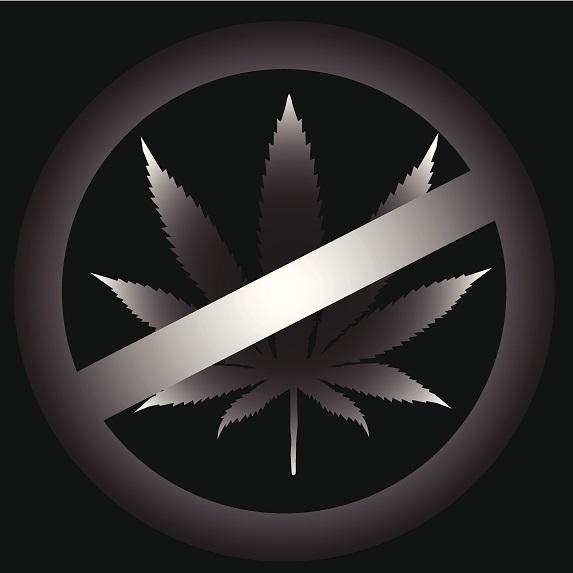 One of the biggest misconceptions about cannabis, or marijuana, is that you can’t get addicted to it. This stems from the fact that it is much less addictive than substances like heroin, meth or crack. This does not mean, however, that you cannot develop a habit when smoking pot. Thousands of people every year seek treatment for marijuana addiction, and it is a real and serious problem.
One of the biggest misconceptions about cannabis, or marijuana, is that you can’t get addicted to it. This stems from the fact that it is much less addictive than substances like heroin, meth or crack. This does not mean, however, that you cannot develop a habit when smoking pot. Thousands of people every year seek treatment for marijuana addiction, and it is a real and serious problem.
It’s easy to be misled by the lax attitude toward marijuana. A lot of people use it recreationally and are able to keep it that way. Maybe you smoke at a party one time and then get some to use at home by yourself. You find that it’s nice to use when you want to relax or party with a few friends. But before you know it, that partying becomes addiction and you can’t relax without your drug of choice.
2. Young People Are Harmed By Marijuana
But, you say, marijuana is being made legal for adults only, not for teens. Of course, there’s no such thing as underage drinking, right? Alcohol is supposed to be for adults only, but around 10 percent of drinking in this country is done by people under the age of 21. Based on alcohol’s example, we can expect that the same will happen with legal pot. Marijuana is particularly bad for young people with brains that are still in development. Studies have shown that teens who smoke pot regularly have lower IQs than their peers. They perform worse academically, miss more days of school and are less likely to participate in extracurricular activities.
3. Marijuana Causes Accidents
Another lesson that alcohol teaches us is that although driving under the influence is outlawed, too many people do it. The result is that thousands of people are injured or killed every year by drunk drivers. With legal marijuana we will be adding thousands of more to that list every year. Intoxicated driving is the same no matter what the substance is. A high driver is like a drunk driver and liable to cause accidents.
The debate about making this drug legal will continue and more states are likely to vote for it, but the cons for recreational marijuana are just too many and too great. There is no need for legal drugs when the safety and well-being of all Americans is at stake.
Get Help Now – Learn More About Marijuana Addiction Treatment
A new trend has emerged in the voting booth: people are saying yes to legal, recreational marijuana. Are there really any benefits of making this drug legal to adults? What will the consequences be, good or bad? It’s too early to tell, but in time we will see if there really are any pros of legalizing recreational marijuana or if it has all been a big mistake and a failed experiment.
Marijuana Is Just For Adults, Right?
Among the many concerns that critics of legalized recreational marijuana have, perhaps the most important is the safety and the health of children and teens.
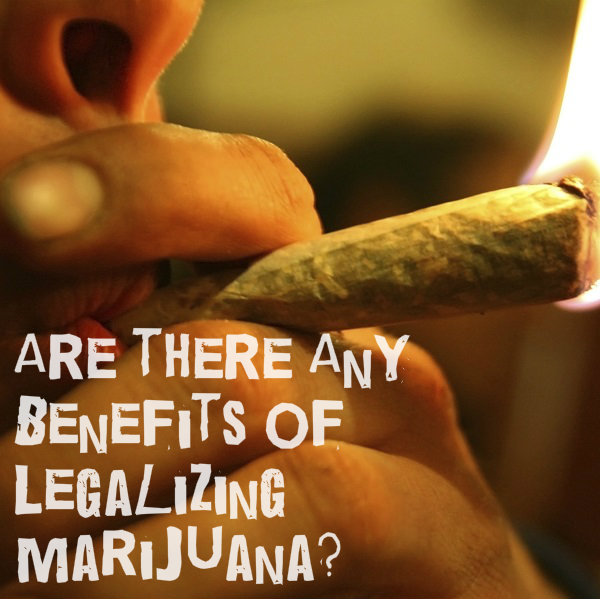 Proponents argue that there are age limits and that kids can’t get access to marijuana, but the same could be said of alcohol. And yet, underage drinking is more than common. In fact, alcohol is the number one substance of abuse among teens. Why? They can access alcohol more easily than drugs because alcohol is legal for adults. To think that kids won’t get their hands on pot is naïve.
Proponents argue that there are age limits and that kids can’t get access to marijuana, but the same could be said of alcohol. And yet, underage drinking is more than common. In fact, alcohol is the number one substance of abuse among teens. Why? They can access alcohol more easily than drugs because alcohol is legal for adults. To think that kids won’t get their hands on pot is naïve.
The safety of teens and kids is important because it will be compromised and is a major one of the many cons for recreational marijuana. Young people have vulnerable, developing brains, and marijuana is a mind-altering drug.
When teens smoke pot they throw a wrench in the works of that development. It has even been shown that smoking pot regularly can lower IQ and reduce academic achievement. Another important point is that most people who get addicted to marijuana started smoking when they were teens.
Public Safety Concerns Everyone
Another major point of contention in the discussion of the pros and cons of legalization of marijuana is the possibility of more accidents. Supporters of legal marijuana say that it isn’t as bad as alcohol when it comes to driving, but it is bad. You can’t drive high and expect to never have an accident. With more pot smokers on the road, more of us are likely to fall victim to a devastating traffic accident. States with legal marijuana have yet to determine how to set and accurately measure an intoxication level.
Are There Any Pros Of Legalizing Marijuana?
When you ask proponents of legal marijuana why they support it, you will mostly get half-hearted answers. Most supporters simply think there is no reason not to make it legal, if alcohol is legal. Others just want to be able to smoke legally and support recreational marijuana for personal and selfish reasons.
Perhaps the one pro that makes the most sense in the argument for legal recreational marijuana is for state revenue. Many states are operating in budget deficits and could use a new source of revenue to shore up their coffers. Whether or not marijuana is the answer to this particular problem remains to be seen. What we know for sure is that it is a big risk for some extra money.
Find Out Now How Changing Marijuana Laws May Impact Children
18 May 2015
The Growing Popularity Of Legal Marijuana
With Washington D.C. voting to legalize recreational marijuana, it feels like a tide is turning in the U.S. Now that our nation’s capital wants recreational pot, how long will it be before all states make a similar vote?
The federal government still maintains that the drug is illegal, but the cons of recreational marijuana legalization fall on many deaf ears as voters take to the ballot.
Voters in Washington, Colorado, Oregon and Alaska have all spoken and decided that pot should be legal for adults to use recreationally.
Why So Many People Believe In Legal Marijuana
 There were already several states allowing for legal medical marijuana when a handful of states decided to take it to the next level. To allow adults to use this mind-altering drug for no other reason than recreation is a concept that has been gaining ground in recent years. While many are debating the advantages and disadvantages of legalizing marijuana, millions of people have already made up their minds.
There were already several states allowing for legal medical marijuana when a handful of states decided to take it to the next level. To allow adults to use this mind-altering drug for no other reason than recreation is a concept that has been gaining ground in recent years. While many are debating the advantages and disadvantages of legalizing marijuana, millions of people have already made up their minds.
Some of the biggest reasons supporters of legal pot give for their position don’t hold much water. For instance, many proponents of legal marijuana simply state that if alcohol is legal, pot should be too.
These supporters claim that marijuana is not as bad for you as drinking and that it doesn’t impair people to the same extent that alcohol does. To use this reasoning is to ignore all the harm and damage that alcohol causes every year, from the thousands of car accidents to the millions spent on health care. The next most popular argument is to claim that cash-stretched states will get a new source of revenue. Whether this proves to be true or worth the risks remains to be seen.
The Overwhelming Negatives To Recreational Drugs
While it is possible to make a case for some benefits of legalizing pot, the negatives far outweigh them. Recreational drugs are never safe, even when the perception is that marijuana is harmless compared to other drugs.
Marijuana causes harmful side effects, long-term health problems, addiction, accidents and even damage to the developing brains of teens and young adults. Yes, legal marijuana is supposed to be restricted to adults, but so is alcohol. And yet, alcohol is the number one substance abused by teens. To think that teens won’t get increased access to pot when it is legal for adults is to be naïve. Research has shown that marijuana use in teens impairs memory, thinking skills and even lowers IQ.
Voters may continue to debate and discuss the pros and cons of legalizing marijuana, but anyone who sees the facts will quickly realize that legal pot is a bad idea. Public health will suffer if more people are getting high and trying to function. We will surely see more accidents, and most troubling of all, teens will suffer.
How Many People Use Medical Marijuana? – Find Out Now!
The Washington D.C. City Council earlier this year elected to cancel a special public hearing where marijuana legalization in the district was to be discussed. In doing so, it was heeding the advice of Dist. Atty. Karl A. Racine, who told council members they would be violating the law by publicly discussing a topic that had been ruled off-limits by Congress.
Marijuana legalization is now a huge issue in the nation’s capital, after the district’s citizens voted to lift some of the sanctions against the drug in last November’s election. D.C. voters overwhelmingly approved a ballot referendum called Initiative 71, which would decriminalize the possession of up to two ounces of marijuana. If allowed to go into effect, it would also allow D.C. residents to grow up to six marijuana plants at home for personal use.
Marijuana Legalization And Regulation Act Of 2015 Bill Shut Down From Public Exposure
For the dictates of Initiative 71 to become reality, the City Council would need to create a system to supervise, regulate and license all activities related to the cultivation, manufacture and legal sale of marijuana products within the Washington, D.C. area. And recently four council members introduced a bill called the Marijuana Legalization and Regulation Act of 2015, which would have set up a framework to do just that.
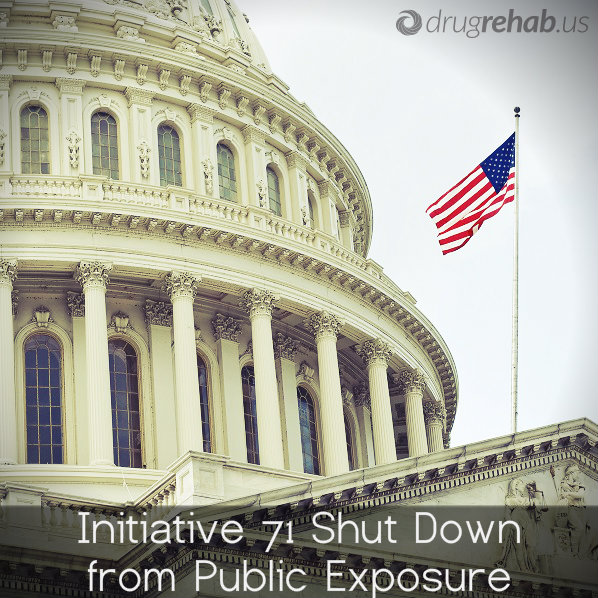 This was to be the subject of a hearing in February. But the council decided to take its discussion behind closed doors, where public exposure would be kept to a minimum.
This was to be the subject of a hearing in February. But the council decided to take its discussion behind closed doors, where public exposure would be kept to a minimum.
While states have the right to pass laws without federal government interference, elected officials in the District of Columbia must submit all such legislation to Congress for final approval. With both the House and Senate under the control of Republicans, who almost universally oppose drug legalization, it has been assumed from the beginning that D.C.’s attempt to change its marijuana laws would be vetoed—and that’s exactly what happened. When Congress passed its annual budget in December, a clause was included that prohibited taxpayer funds—either federal or local—from being used to implement any changes in drug laws.
The D.C. council members were fully aware of these restrictions when they planned this hearing and when their bill to create a manufacture-and-distribution network was first introduced. But they wanted to have a sensible and comprehensive action plan in place in the event that a new Congress with a more progressive attitude were to come into power.
But according to Racine, even discussing the issue could be interpreted as defying the will of the nation’s most powerful legislative body. He told the D.C. council members that their planned public discussion might violate another congressional edict called the Anti-Deficiency Act, which forbids lawmakers and bureaucrats in the district from spending tax funds on actions banned by the federal government. Sharing information and opinions in private meetings would be protected by the First Amendment, Racine declared, but pushing the legalization of marijuana even one step closer to reality would put council members squarely in the line of fire. Racine claimed they might be subject to fines or jail sentences if they went ahead with their original plan.
Racine’s opinion was not shared by D.C. council staff attorney V. David Zvenyach. He saw nothing in existing law that would prevent council members from planning for future contingencies. Given this backdrop, it is not surprising that several members of the council strongly disagreed with the decision to cancel the public hearing. Chalking the whole brouhaha up to unwanted congressional meddling, the members of this group were outraged by what they saw as intolerable interference in the affairs of an independent city.
Initiative 71 And The War On Drugs
Initiative 71 seems doomed to irrelevancy as long as Republicans maintain control of Congress—or as long as the Republican consensus remains hostile to any loosening of existing drug laws.
It is noteworthy, however, that Obama administration drug czar Michael Botticelli recently stated his opinion that Initiative 71 should be allowed to go into effect. This represents a change from the past, when Democrats and Republicans were united in their determination to continue the war on drugs without compromise. Winds of change are in the air, and while the immediate future of Initiative 71 doesn’t seem particularly bright, it is likely only a matter of time before the will of the people carries the day.
Find Out Why No States Should Be Legalizing Recreational Marijuana
It would seem that negatives to recreational drugs would be obvious and overwhelming, but voters in several states have now approved legal, recreational marijuana. Medical marijuana is legal in nearly half of the 50 states, but allowing recreational use of the drug is a completely different matter. Washington, Oregon, Colorado, Alaska and the District of Columbia have made the vote for legal, recreational pot. According to many opponents of the votes, these states have made a big mistake.
Why Voters Approve Legal Marijuana
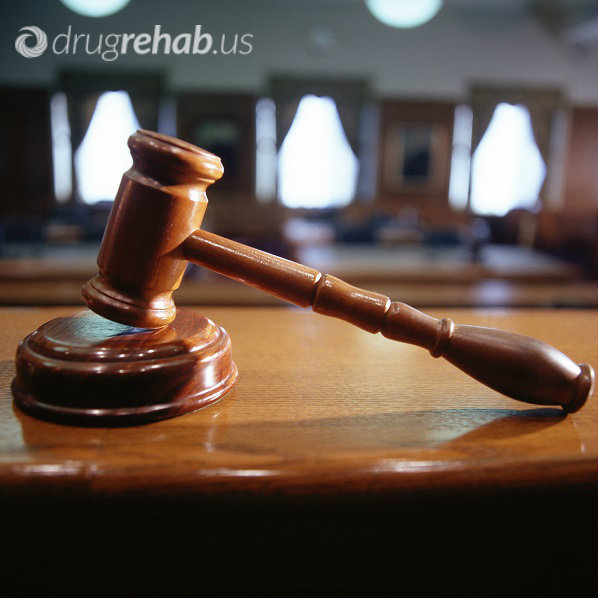 Marijuana remains illegal for recreational use according to the federal government, but states are asserting their rights and putting the legality of the drug to the vote.
Marijuana remains illegal for recreational use according to the federal government, but states are asserting their rights and putting the legality of the drug to the vote.
Those voters who have approved the legalization have a number of reasons for doing so and feel that they outweigh the obvious disadvantages of legalizing marijuana.
Some simply want to be able to use the drug without breaking the law.
Others see it as a good source of revenue for the state.
Many also see it as a way to reduce prison populations.
The Cons Of Recreational Marijuana Legalization
While the upside reasons to legalizing pot can sound pretty convincing, they completely ignore the obvious downsides. The overwhelming reasons to not allow legal marijuana are related to public health and the health of individuals. Marijuana is a mind-altering, addictive drug. Too many people forget this fact and falsely assume that marijuana is not that detrimental to health simply because it isn’t as bad as heroin, meth or cocaine.
Regular marijuana use leads to addiction in about 10 percent of those who partake. There are more people in rehab for marijuana addiction than for any other single drug. Even without addiction, marijuana use is detrimental to health. Smoking pot can cause lung conditions and memory loss. Using pot can also lead to accidents. Driving under the influence of marijuana is dangerous and there is no way yet to accurately determine when someone is too impaired to drive.
Of all the cons of legalizing marijuana, perhaps the most serious is the effect it could have on young people. Teens with developing brains stand to suffer the most from using this drug, and while laws will ban them from using it, everyone knows that legalizing the drug will only increase access for young people.
Currently, alcohol is the most commonly abused substance by teens because it is the easiest substance to get. With legalization, access to pot will only increase. Teens who smoke pot regularly risk causing permanent damage to their brains, including memory impairment and a lower IQ. Teens are also at a greater risk than adults of becoming addicted to marijuana.
Legalization of recreational pot is a reality that we must now face. With four states and D.C. voting for legalization and more states likely to follow suit, the negative consequences are likely to start appearing. If you have a teen in the home, be sure to have a talk about the dangers of using marijuana. Many people, especially teens, fail to recognize the risks taken when using marijuana.
How Many People Use Medical Marijuana? – Find Out The Truth Now!
02 Apr 2015
Why Recreational Marijuana Should Stay Illegal
Should marijuana be legalized for recreational use? This is a question on the minds of many people these days. Voters have gone to the polls and, in a few states, are telling their governments that they want legal pot. Attitudes toward this mind-altering substance are changing and many people don’t believe it is harmful enough to be illegal. This attitude is dangerous, though. Marijuana is a drug that changes brain chemistry, alters mood, causes side effects and leads to addiction in at least a tenth of users. There are too many reasons for keeping this drug illegal.
Main Reasons Why Recreational Marijuana Should Stay Illegal
Marijuana Is Bad For Health
 There is a lot of evidence that some of the compounds in the cannabis plant, which is where marijuana comes from, can help people with certain illnesses. But for healthy people, using marijuana causes a number of bad side effects and negative health consequences.
There is a lot of evidence that some of the compounds in the cannabis plant, which is where marijuana comes from, can help people with certain illnesses. But for healthy people, using marijuana causes a number of bad side effects and negative health consequences.
Short term marijuana effects include:
Sleepiness and depression, an increased heart rate (which can cause a heart attack, anxiety and panic), and delayed reaction times.
Long term marijuana effects include:
Over the long-term the drug suppresses the immune system, causes growth disorders, lack of motivation and lung damage, changes mood and personality and lowers libido.
Marijuana Is Addictive
One of the greatest misconceptions about this drug, and an important argument against legalization of marijuana is addiction. While not nearly as addictive as drugs like heroin or crack, marijuana is habit-forming and causes addiction in one out of nine users. Many people seeking professional treatment for addiction are hooked on marijuana. The problem is particularly real for young people. Addiction to marijuana is most likely to develop in users who started smoking as teenagers.
Marijuana Causes Accidents
Most people who use marijuana like the relaxing sensation that it imparts. The drug makes you feel drowsy, happy, relaxed and comfortable. The downside to these effects is the risk of having accidents. Marijuana messes with your coordination, reaction times and inhibitions. While high on pot, people make bad choices and have accidents that could have been prevented. If marijuana is legal, innocent people will become the victims of these accidents. Drinking and driving accidents already kill many people every day. Driving while high on pot will only add to the problem.
Marijuana Harms Young People
Teens and young adults are especially vulnerable to the negative effects of marijuana. They are more likely to become addicted to it. They are also at a greater risk of lasting mental damage from marijuana. Brains of teenagers are still developing, and using mind-altering substances can hamper that development. Teens using marijuana regularly experience lasting cognitive defects and memory deficits.
The pros and cons of recreational cannabis will continue to be debated in the public and voters will keep going to the polls to decide pot’s legal status. As the discussion carries on, we all need to remember the harm that marijuana causes and the lasting damage many users experience.
Read More What’s The Impact Of Recreational Marijuana Becoming Legal In Colorado?
05 Feb 2015
Can You Safely Use Recreational Marijuana?
Recreational marijuana is now legal for adults in Washington and Colorado. The citizens of those states spoke and voted for legalization. The votes signify shifting attitudes across the country. Many people do not believe that marijuana should be kept illegal. Proponents of legal marijuana say that it is less risky than cigarettes or alcohol and that the tax revenue can help state and local governments.
Does this mean that you can use marijuana safely?
Short-Term Effects Of Marijuana
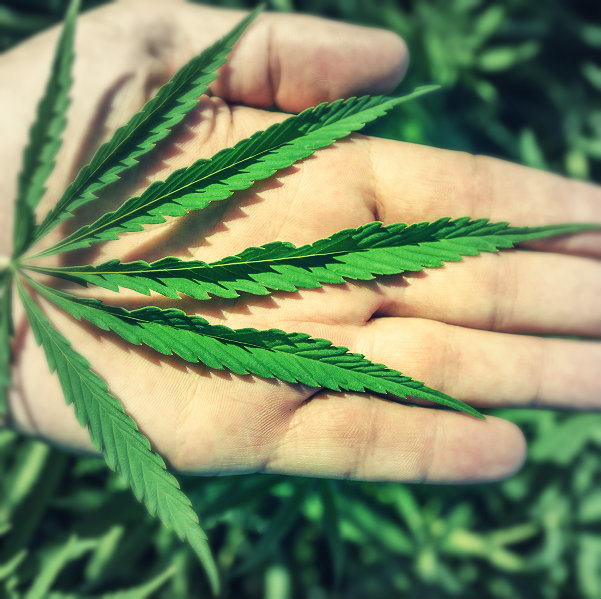 Before you decide whether or not you can safely use recreational marijuana, you should know the facts. When you smoke pot or consume the cannabis plant you are taking in a psychoactive compound called THC. This is the substance that is largely responsible for the high that accompanies pot smoking. THC acts on certain receptors in the brain to produce a number of effects: giddiness, lightheadedness, relaxation, introspection, a desire to eat, but also paranoia, irritability and disturbing thoughts.
Before you decide whether or not you can safely use recreational marijuana, you should know the facts. When you smoke pot or consume the cannabis plant you are taking in a psychoactive compound called THC. This is the substance that is largely responsible for the high that accompanies pot smoking. THC acts on certain receptors in the brain to produce a number of effects: giddiness, lightheadedness, relaxation, introspection, a desire to eat, but also paranoia, irritability and disturbing thoughts.
Using marijuana also results in an impairment of certain abilities. Your memory gets worse, as does your ability to focus and concentrate. It blunts your motor skills and your ability to operate machinery effectively. Driving a car is extremely dangerous when under the influence of marijuana.
Long-Term Effects Of Marijuana
The long-term impact of smoking pot is still being researched, but there is plenty of evidence that it can have some seriously negative effects. Most problematic is the impact on young people. If you start using marijuana as a teen you are at a much greater risk of getting addicted. You also face the risk of permanently damaging cognitive functions. Regular users who began smoking as teens see a drop of as much as eight IQ points into adulthood.
Even casual users of marijuana experience permanent changes in the brain. These include changes to the parts of the brain that govern motivation, addiction and emotion. And of course, there are health problems associated with smoking, which include respiratory illnesses and potentially the development of lung cancer with frequent and regular use.
Marijuana Is Addictive
Proponents of marijuana use will argue that the drug is not addictive, but research says otherwise. It is less addictive than nicotine, alcohol and heroin, but it is habit forming. In fact, nine percent of people who ever use the drug will become dependent on it. The risk is especially high for young people. For users who first started smoking as a teen, there is a much greater chance of getting hooked than for an adult using the drug for the first time.
Adults using pot run the risk of becoming addicted too. The greatest risk comes with using it regularly and frequently. Unlike harder drugs, addiction to pot is not sudden. It comes on more slowly, but can be just as devastating. 18 percent of people seeking drug addiction treatment in the U.S. are addicted to marijuana. Withdrawal symptoms that make it difficult to quit include insomnia, cravings, anxiety and irritability.
If you have been wondering about recreational marijuana and whether it can truly be safe for a responsible adult, make sure you get all the facts. No drug is ever safe. Marijuana may carry fewer risks than heroin or cocaine, but it can alter your brain, dull your motor skills, impair your memory, lead you to have an accident, lead to respiratory problems and cause you to become an addict. Are these risks worth the high? That is for you to decide.


